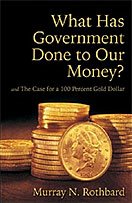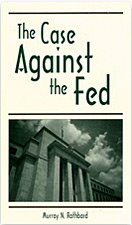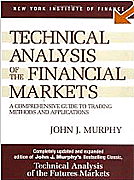INFLATE OR ...DIE? (European Style!)
The European Central Bank today promised to give everyone as much cash as he wanted. (See second paragraph below.)
* * *
By Gillian Tett, Richard Milne, and Krishna Guha
Financial Times, London
Thursday, August 9, 2007
The European Central Bank scrambled to head off a potential financial crisis on Thursday by making an emergency injection of E94.8 billion worth of funds into the region's money markets, after signs that liquidity was drying up.
The level of funds markedly exceeded the ECB's only previous major intervention on the day after 9/11, when it lent E69 billion followed by E40 billion over subsequent days. Even more striking was its one-day pledge to meet 100 percent of all funding requests from financial institutions.
This liquidity injection was designed to ensure that money markets continued to function and did not succumb to a credit freeze. The US Federal Reserve followed suit, although in far less dramatic fashion.
The ECB did not offer any detailed explanation for its move, which caught markets by surprise, but simply said it was now seeking to "assure orderly conditions in the euro money market." However, it came as several financial institutions, such as BNP Paribas, admitted they had suffered significant losses as a result of investments linked to the credit markets.
Many of these are linked to problems in the US subprime mortgage sector.
It also came amid signs that liquidity has recently evaporated from parts of the European inter-bank market, pushing overnight borrowing rates sharply higher. Ed Marrinan, head of credit strategy at JPMorgan, said: "This appears to be a prudent, pre-emptive step to head off any possibility of liquidity problems."
The ECB's intervention prompted a sharp rise in eurozone and US government bond prices -- and a corresponding decline in yields -- while the cost of insuring against a corporate default using derivatives rose sharply on both sides of the Atlantic.
In equity markets the FTSE, the leading UK stock index, lost 1.83 per cent, while Germany's DAX index fell 2 per cent, and France's CAC-40 fell 2.17 per cent after being down more than 3 per cent. In early US trading, the Dow fell 0.99 per cent, to 13,522.18.
Marc Ostwald, fixed-income strategist at Insinger de Beaufort, said: "There is huge pressure on money rates due to an apparent sense of mistrust. Following BNP Paribas' statement, very few institutions appear willing to lend. If you kill off the inter-bank market and the asset-backed commercial paper market has effectively collapsed, then we look to be heading for a serious liquidity crunch."
The Europe liquidity problems initially spilled over to the US, where the benchmark federal funds rate moved above the Federal Reserve's target rate of 5.25 per cent to more than 5.75 per cent in early trading.
In response, the Federal Reserve also stepped up its provision of liquidity into US financial markets. The New York Fed injected $24 billion into the markets in two scheduled open-market operations, bringing forward the second by 15 minutes to calm market nerves.
The $24 billion is roughly double normal but is not remarkably high and suggests the Fed is not in outright crisis-fighting mode.
The ECB move succeeded in restoring calm to the money markets. Before its injection of liquidity, the cost for banks to borrow money overnight in euro money markets had risen over 4.62 per cent, its highest level for six years and well above the ECB's 4 per cent target. However, after the move, overnight rates fell back towards 4 per cent.
Nevertheless, some traders warned that the unease was unlikely to dissipate soon. Edwin Rood, global head of money markets at ABN Amro, said: "The underlying problem cannot be addressed directly by the ECB and therefore we will see the same liquidity difficulties tomorrow and the next day."
* * *
* * *
ECB in E95 Billion Move on Market Turmoil
By Gillian Tett, Richard Milne, and Krishna Guha
Financial Times, London
Thursday, August 9, 2007
The European Central Bank scrambled to head off a potential financial crisis on Thursday by making an emergency injection of E94.8 billion worth of funds into the region's money markets, after signs that liquidity was drying up.
The level of funds markedly exceeded the ECB's only previous major intervention on the day after 9/11, when it lent E69 billion followed by E40 billion over subsequent days. Even more striking was its one-day pledge to meet 100 percent of all funding requests from financial institutions.
This liquidity injection was designed to ensure that money markets continued to function and did not succumb to a credit freeze. The US Federal Reserve followed suit, although in far less dramatic fashion.
The ECB did not offer any detailed explanation for its move, which caught markets by surprise, but simply said it was now seeking to "assure orderly conditions in the euro money market." However, it came as several financial institutions, such as BNP Paribas, admitted they had suffered significant losses as a result of investments linked to the credit markets.
Many of these are linked to problems in the US subprime mortgage sector.
It also came amid signs that liquidity has recently evaporated from parts of the European inter-bank market, pushing overnight borrowing rates sharply higher. Ed Marrinan, head of credit strategy at JPMorgan, said: "This appears to be a prudent, pre-emptive step to head off any possibility of liquidity problems."
The ECB's intervention prompted a sharp rise in eurozone and US government bond prices -- and a corresponding decline in yields -- while the cost of insuring against a corporate default using derivatives rose sharply on both sides of the Atlantic.
In equity markets the FTSE, the leading UK stock index, lost 1.83 per cent, while Germany's DAX index fell 2 per cent, and France's CAC-40 fell 2.17 per cent after being down more than 3 per cent. In early US trading, the Dow fell 0.99 per cent, to 13,522.18.
Marc Ostwald, fixed-income strategist at Insinger de Beaufort, said: "There is huge pressure on money rates due to an apparent sense of mistrust. Following BNP Paribas' statement, very few institutions appear willing to lend. If you kill off the inter-bank market and the asset-backed commercial paper market has effectively collapsed, then we look to be heading for a serious liquidity crunch."
The Europe liquidity problems initially spilled over to the US, where the benchmark federal funds rate moved above the Federal Reserve's target rate of 5.25 per cent to more than 5.75 per cent in early trading.
In response, the Federal Reserve also stepped up its provision of liquidity into US financial markets. The New York Fed injected $24 billion into the markets in two scheduled open-market operations, bringing forward the second by 15 minutes to calm market nerves.
The $24 billion is roughly double normal but is not remarkably high and suggests the Fed is not in outright crisis-fighting mode.
The ECB move succeeded in restoring calm to the money markets. Before its injection of liquidity, the cost for banks to borrow money overnight in euro money markets had risen over 4.62 per cent, its highest level for six years and well above the ECB's 4 per cent target. However, after the move, overnight rates fell back towards 4 per cent.
Nevertheless, some traders warned that the unease was unlikely to dissipate soon. Edwin Rood, global head of money markets at ABN Amro, said: "The underlying problem cannot be addressed directly by the ECB and therefore we will see the same liquidity difficulties tomorrow and the next day."
* * *
Labels: financial crisis, inflation, market manipulation, money















![[Most Recent Quotes from www.kitco.com] [Most Recent Quotes from www.kitco.com]](http://www.kitco.com/images/live/t24_au_en_usoz_6.gif)
![[Most Recent Quotes from www.kitco.com] [Most Recent Quotes from www.kitco.com]](http://www.kitco.com/images/live/au_go_0030_ny.gif)
![[Most Recent Quotes from www.kitco.com] [Most Recent Quotes from www.kitco.com]](http://www.kitco.com/images/live/au_go_0365_ny.gif)
![[Most Recent Quotes from www.kitco.com] [Most Recent Quotes from www.kitco.com]](http://kitconet.com/charts/metals/silver/t24_ag_en_usoz_4.gif)

















0 ΣΧΟΛΙΑ (COMMENTS):
Post a Comment
<< Home